A Father's Day Look at Parenting
Reviews: “Ode to My Father," "The Good Bad Mother," and "Angry Mom"
Happy Father’s Day to all the awesome dads out there, including my husband and my late father… to all the step dads who fulfilled the role that another man didn’t… to the adoptive fathers who are grateful to be a child’s parent… to the biological dads who think of their babies every day… to all the mothers, grandparents, aunts, uncles, cousins and friends who have stepped up when a father could not… I hope you all have the best day.
I know that some of my posts are on the long side. So if you don’t have the time (or desire) to read the entire piece, I’ve started to divide them into more manageable sections. You may click on the titles below and the links will take you directly to the specific review. I hope you find this helpful:
The Good Bad Mother ☆☆☆½
Ode to My Father ☆☆☆
Angry Mom ☆☆
As always, the ratings are based on a ☆☆☆☆ system and are based on my own personal tastes. So without further ado, here are my thoughts.
“Ode to My Father” ☆☆☆
My father was just 17 when he became the primary breadwinner for his family. When he was sent away to fight in the front lines during the Korean War, his younger brothers tearfully begged to go with him, saying they would rather die with him, than to survive on their own. When a neighbor, who was being forced to turn in communists, pointed his finger at my father — who wasn’t a communist — my 아버지 forgave him.
My smart, talented and industrious father gave up dreams of going to medical school in Tokyo — something that would’ve benefited him in the long run. But in the short run, who would take care of his parents and younger siblings while he was away?
Some people make choices. Others, like my father, were bound by duty to tackle responsibilities that would have crumpled others.
In a review that ran in the New York Times, film critic Jeannette Catsoulis gave “Ode to My Father” a big thumbs down for being “syrupy” and for having “packaged pain … likely to leave Western audiences cold.”
While there is no doubt that director Yoo Je-Kyoon would’ve loved for American audiences to embrace his movie, it’s also undeniable that this film was not made with Western moviegoers in mind.
It was made for Koreans.
It wasn’t until I was older that my parents shared with me some of the horrors they lived through during the Korean War, and I can assure Ms. Catsoulis that the “packaged pain” she complains about was all too real. Perhaps she believes it isn’t plausible that the protagonist would give up the opportunity to better his future and that the life he led is worth an “eye roll”; or that the heartbreaking televised reunions between families torn apart by the Korean War are melodramatic. (She might want to read her own paper’s coverage of how Korean families were separated after the Korean Peninsula was divided.)
The core of the film deals with loss. During the Hungnam Evacuation in the Korean War, Deok-Su (Hwang Jung-Min) is told by his parents that he has to make sure that his baby sister remains with him. Just a child himself, he loses her. Along with his mother and two of his siblings, he is rescued by a U.S. naval carrier. But the family is separated from his father and baby sister.
This loss will haunt him for the rest of his life, as he tries to fulfill the promise he made to his father: that as the oldest son, he will take care of his mother and siblings.
Near the end of the film, Deok-Su tells his wife that he is glad that it was them who suffered so that their children could have easier, better lives. That sentiment was shared by my parents and much of their generation, who in many ways gave up their lives to ensure our future.
Art is often made to be accessible to the general public and, when it isn’t, it can come across as exclusionary. But for me, “Ode to My Father” is something familiar that evokes memories of sadness, happiness and hope.
Spoiler alert:
Deuk-su never sees his father again. However, he later learns that his baby sister was sent to an orphanage after being separated from her family. She was later adopted by an American family. Deuk-su gets some peace of mind when he is able to reunite her with their mother. Casting directors for the film reached out to Korean American actress Stella Choe to play the grown-up version of the sister. How’d they find her? They saw her viral Youtube video, “What Kind of Asian are You”?
“Ode to My Father” isn’t without its flaws (the rescue scene in the German mine, for instance, was implausible). And I went into nitpicking mode when the long-lost sister was able to not only remember, but repeat her brother’s last words to her … in nearly perfect Korean. As an adoptee who didn’t grow up speaking Korean, she would not have been able to execute this nearly impossible feat.
Ethnocentric reviews:
What rubbed me the wrong way about this NYT review is that it was too quick to dismiss things the critic didn’t understand. It reminded me a bit of how this NPR book critic dismissed a Korean novel as “kimchee-scented Kleenex fiction.”
Of course, Catsoulis’ review was nowhere near as offensive as Rex Reed’s critique of the South Korean hit, “Oldboy,” in the New York Observer. I was surprised at his review for two reasons:
Honestly, I hadn’t realized that Reed was still alive.
His vitriol was over-the-top, even for him.
Reed didn’t like “Oldboy,” which is his right, of course. But — like the NPR reviewer who didn’t enjoy “Please Look After Mom” — Reed’s critique took a stab at kimchi, of all things.
He dismissed the film as being trash, because, after all, Korea couldn’t possibly produce a worthy movie. He wrote, “What else can you expect from a nation weaned on kimchi, a mixture of raw garlic and cabbage buried underground until it rots, dug up from the grave and then served in earthenware pots sold at the Seoul airport as souvenirs?”
It’s one thing to be bitchy in an effort to be clever. But it’s low, Low, LOW to try to malign kimchi. Maybe if he ate some of it, he wouldn’t look a decade older than he actually is. (As of this writing, Reed is 84.)
"The Good Bad Mother" ☆☆☆½
Like “Our Blues,” “My Liberation Notes” and “Reply 1988,” “The Good Bad Mother” is a slice-of-life series filled with quirky characters who are overly interested in each other’s business. They support one another, are jealous of each other’s children and talk smack about whoever’s not there. But if an outsider dares to do the same, hell hath no fury like a neighbor scorned."
Ra Mi-ran, who was so good as Ryu Jun-yeol's mother in "Reply 1988," portrays Lee Do-hyun's good, bad mother here. She's reunited with her "Reply 1988" castmate Choi Moo-sung (who had played Park Bo-gum's father) — who chews up the scenery as a high-level thug who is responsible for her nuclear family's misery.
After Young-soon's husband dies, she is left with no options but to work and prepare for the birth of their son.
Her neighbors had initially shunned her because they didn't want “filthy pigs” ruining their countryside. Never mind that the samgyeopsal (grilled pork belly) they enjoy eating isn't possible without pigs. But when the widow goes into labor in one of their homes, and another woman gives birth to a baby girl a few minutes later, these villagers are bound together for life. They collectively refer to the baby boy as "우리 강호" (our Kang-ho). And, of course, the baby girl Mi-joo (Ahn Eun-jin) and Kang-ho will be connected throughout their lives, romantically and otherwise.
Young-soon had been orphaned as a young teenager and had to give up her dreams of becoming an artist. When she sees that her own child inherited her talent, she forbids him from drawing and pursuing art. The only way to be treated like a respectable human being is to become educated and attain power, she tells him. She goes beyond the Tiger Mom narrative to ensure that he is always the top student at school. But this comes at a price. Young-soon doesn't allow Kang-ho to eat a full meal, because doing so would make him sleepy, which would cut into his studying time.
Throughout the series, viewers are privy to Young-soon's battles. On the one hand, we feel bad for her because it is difficult to raise a child and run a farm by yourself. But she also hits her child for not studying enough and doesn't encourage him to do anything else. Just study. Yes, she has a goal for him that could ultimately make his life easier. But the boy, who was born after his father died, needs more than straight A's to fulfill his life.
When she yells at him for having taken Mi-joo — who had been hit by a motorcycle — to the hospital instead of taking his college entrance exam, he rebels and vows to never see her again. Of course, those are heated words spoken during a traumatic time.
But the next time we see the mother and son together is when he visits her farm with his fiancée — and tells his mother to sign the relinquishment papers so he can be adopted by Song Woo-byeok (played by Choi Moo-sung). Of course, this adoption is just a formality, because Kang-ho is 30 by this point and too old to be adopted. And Woo-byeok is too old to legally adopt a "child."
Young-soon is heartbroken, but feeling she didn't do enough for him, she relinquishes her rights and says, "This is just paper. I'll always be his mother."
Returning home from his mother's house, Kang-ho survives a horrific auto crash that leaves him paralyzed and with the mentality of a 7-year-old child. The one good thing about it is that Young-soon has the opportunity to raise him again and correct her mistakes from earlier years. She's befuddled when her son refuses to eat. When she finally gets it out of him, he parrots back the words she said to him throughout his school years: if he eats, he'll get sleepy. And if he gets sleepy, he can't study. This is her ah ha moment, where she realizes that what she did for his own good... what she did to better his life so that he wouldn't end up poor and powerless like his parents... all of that contributed to a miserable life for him.
This scene drives home that how we were raised and what is ingrained in us from childhood — the good and the bad — manifests in our lives as adults.
By the end of this series, we will have experienced hope, subterfuge, death, true friendship, a new beginning and an oh-so-satisfying revenge arc.
Transliteration: The actual title of this series is "Bad Mother" in Korean. I'm not sure why Netflix felt the need to add "Good" in the title.
Meta moment: In Episode 13, a thug refers to his hotel as "sweet home" in English. "Sweet Home" is the name of one of Lee Do-hyun's previous K-dramas.
Cute child actors: When Mi-joo's twin kindergarten-age children Ye-jin (Ki So-yu) and Seo-jin (Park Da-on) are introduced in the series, you won't have to think too long before guessing correctly who the father is. The child actors are so cute and good in their roles. One of the things I didn't like, though, was when Ye-jin — who has a huge crush on Kang-ho — tells her mom that she's going to skip dinner because she has to be slim in order to look pretty in her future wedding dress.
Who's that?: A huge shoutout to Yoo In-soo, who is almost unrecognizable in every role he tackles (the undying quasi zombie in "All of Us Are Dead" and the heir to the tony Songrim clan in the "Alchemy of Souls" franchise). Here, he plays Sam-sik, a petty criminal who grew up with Kang-ho (who he was unfavorably compared to) and Mi-joo (who he has always been in love with).
Is he a she?: One of the peripheral characters is a villager who shows up at the gatherings. And I wasn't sure if they were a man or a woman at first. They had a ponytail, wore what appeared to be women's clothes, and a tiny bit of makeup. But no one made a fuss about it. The character was just allowed to be.
The white actor: Andrea (played by Joshua Newton) was the best white character I've seen in a K-drama. Young-soon hires him to help take care of the farm. I honestly don't know if he's simply a bad actor or if he was directed to act like the stereotypical white actor who can't act well but gets a K-drama role because he's white. I found him to be hysterical and charming. His best scene is when he tells Young-soon that Kang-ho left with a piglet to show Mi-joo. Feeling guilty for not having stopped him, Andrea shakes his head ruefully and dramatically says, "I deserve to die!" (K-drama characters often make this dramatic proclamation when they want to be forgiven for something they've done wrong.)
Airdates: Fourteen episodes (ranging from 70- to 80-minutes each) aired on JTBC from April 26 to June 8, 2023. I watched this on Netflix.
Spoiler Alert: Near the end of the series, it's explained why Young-soon wouldn't allow Kang-ho to go on school picnics. She said that as a child, she packed a picnic lunch of kimbap for her parents and brother. (She stayed home.) They died in an automobile accident. As a married woman, she packed kimbap for her husband. He later died. (His death was made to look like a suicide and had been orchestrated by Song Woo-byeok.) But he didn't know any of this as an elementary school student. And on the school form where he had to write in why he was missing the school outing, he simply wrote, "나쁜 엄마" (bad mom).
After Kang-ho passes his law bar exam, Mi-joo jokes that she'll let him marry her after he saves her a third time. (He had previously prevented her from choking on candy and then later took her to the hospital after she was hit by a motorcycle). He tells her that she shouldn't be grateful to someone who saves her, but to someone who makes her want to live. Early on in Episode 4, he told her, "I want to live a very long time with you."
When he breaks up with her, she is heartbroken. She is also pregnant with his babies. But she never tells him, because she doesn't want to hold him back.
Though he loved Mi-joo and his mother, he deliberately turned his back on them because he wanted to convince the people he's working for that these women meant nothing to him. He extracts himself from the lives of those he loves in order to protect them. Because his goal wasn't to just become a prosecuting attorney for clout and prestige. He wanted to get justice for his father, who they had killed.
In the finale, Young-soon watches in court as her son (who has regained his memory) clears his father's name and puts the murderers behind bars. And she gives her blessing to Kang-ho and Mi-joo to marry.
After celebrating her birthday, Young-soon peacefully dies in her sleep. (She had Stage 4 cancer.) But she died knowing that Kang-ho was happy.
“Angry Mom” ☆☆
Jo Kang-Ja / Jo Bang-Weol (played by Kim Hee-Sun)
Oh Ah-Ran (played by Kim Yoo-Jung)
Go Bok-Dong (played by Ji Soo)
↑Note: Korean names denote the surname followed by the given name.
Do we have any moms reading this right now (angry or otherwise)? If so, you already know that we will do just about anything to ensure that our children are safe and protected.
So what do you do if your child is being bullied by her classmates? If you’re Jo Kang-Ja, you go undercover at your daughter’s high school to ferret out the mean kids and try to right the wrongs. Yes, this sounds like “21 Jump Street,” Korean style. But thanks to some great acting by Kim Hee-Sun and Kim Yoo-Jung (as her daughter, Oh Ah-Ran), it works.
As beautiful as she is, Kim Hee-Sun looks much too old to be an actual teenager. It was almost laughable how not only teens, but also teachers much younger than her, kept addressing her as a kid. But, what’s important here is that she has the mannerisms of a kid down pat and makes you want to believe in her.
Teenagers may be tough, but they’re no match for this strong-willed ajumma. This series also brings up the question of whether it’s OK to be a bully if you are standing up for the rights of the weak.
Speaking of which … Kang-Ja had quite the bullying past of her own. I was disappointed that the writers never had her show remorse for her own past teenage behavior. And when she does 21 Jump Street it to her daughter’s school, she’s a bully again, not only to the kids who tormented her child, but also to a naive male teacher (Ji Hyun-Woo) who is one of the few at the school who is trying to do the right thing.
Is he irritating? Yes. He’s annoyingly optimistic and a pushover, much like Jang Na-Ra’s character in “School 2013.” But he’s a good egg overall. Meanwhile, she’s snowed by the smarmy teacher who’s having sex with at least one student, but says all the lies that parents want to hear.
Ji Soo plays Go Bok-Dong, the toughest kid in high school. And though he starts off as little more than a gangster’s henchman, the storyline is transparent enough that viewers can see that he is being forced to do things he would rather not. He develops a slow-burning crush on Kang-Ja, which doesn’t abate even after he learns she is at least twice his age. But the crush was sweet, moreso than problematic, because I think he was in love with the mom characteristics that she showed him (making sure he was fed, giving him advice) rather than any feelings of true romance.
This series could’ve been much stronger if more attention had been paid to details. Many of the characters started off almost like wacky cartoon depictions, before their humanity came through in the finals episodes.
I know this is a fictionalized series set in modern-day South Korea, but the scenes where parents bribe the teachers into giving their children preferential treatment rang all too true. My mother had told me about incidents in Korea where parents had to bribe the teachers to get fair treatment for their children. (Also…obviously not every teacher we had in Korea was corrupt.) When my sister was a tween in Seoul, she came home upset one day, because her artwork was consistently passed over from being displayed at school — even though her paintings were acknowledged as the best. My parents hadn’t bribed the teacher, hence, my sister wasn’t favored. My mother consoled my sister by telling her that we were immigrating to the U.S. soon and things would be more fair there.
And while the U.S. certainly isn’t perfect, what my mother had predicted was true. Our teachers didn’t ask about our wealth (or lack thereof) and my sister’s artwork was prominently displayed.
Airdates: Sixteen episodes — each about 70-minutes long — aired on MBC from March 18 to May 7, 2015.
Spoiler Alert: Ah-Ran’s best friend had an affair with a powerful teacher. After getting bored with her, he broke up with her and tried to force her to transfer to a different school. When that failed, he pushed her off the school building to her death. An autopsy showed that she was pregnant when she died, but they never performed a forensic paternity test prior to cremating the body. If I had been her mother, I would’ve insisted that all the evidence was collected ASAP so that statutory rape charges could’ve been filed after the baby’s father was identified.
I know that was a plot device to keep the series rolling. But it was painful to watch such an oversight.
Also, Kang-Ja and many of the characters obliviously hand over one-of-a-kind evidence to corrupt government officials without making a backup copy. Granted, she didn’t realize at the time that the Ministry of Education and police department were filled with evil men. But having a copy safely tucked away is always a good idea. Or she could’ve taken along a reputable person with her (a reporter or a judge that she knew from her troubled childhood) as a witness to what she was handing over.
The big secret of the series is, “Who is Ah-Ran’s biological father?” It wasn’t Ahn Dong-Chil — the local gangster, who terrorizes everyone. Rather, it was Dong-Chil’s younger brother, who had been Kang-Ja’s high school sweetheart. Dong-Chil never liked Kang-Ja and ordered her to stay away from his sibling. The boy tried to protect Kang-Ja and ended up being accidentally stabbed to death by his own brother.
© 2023 JAE-HA KIM | All Rights Reserved




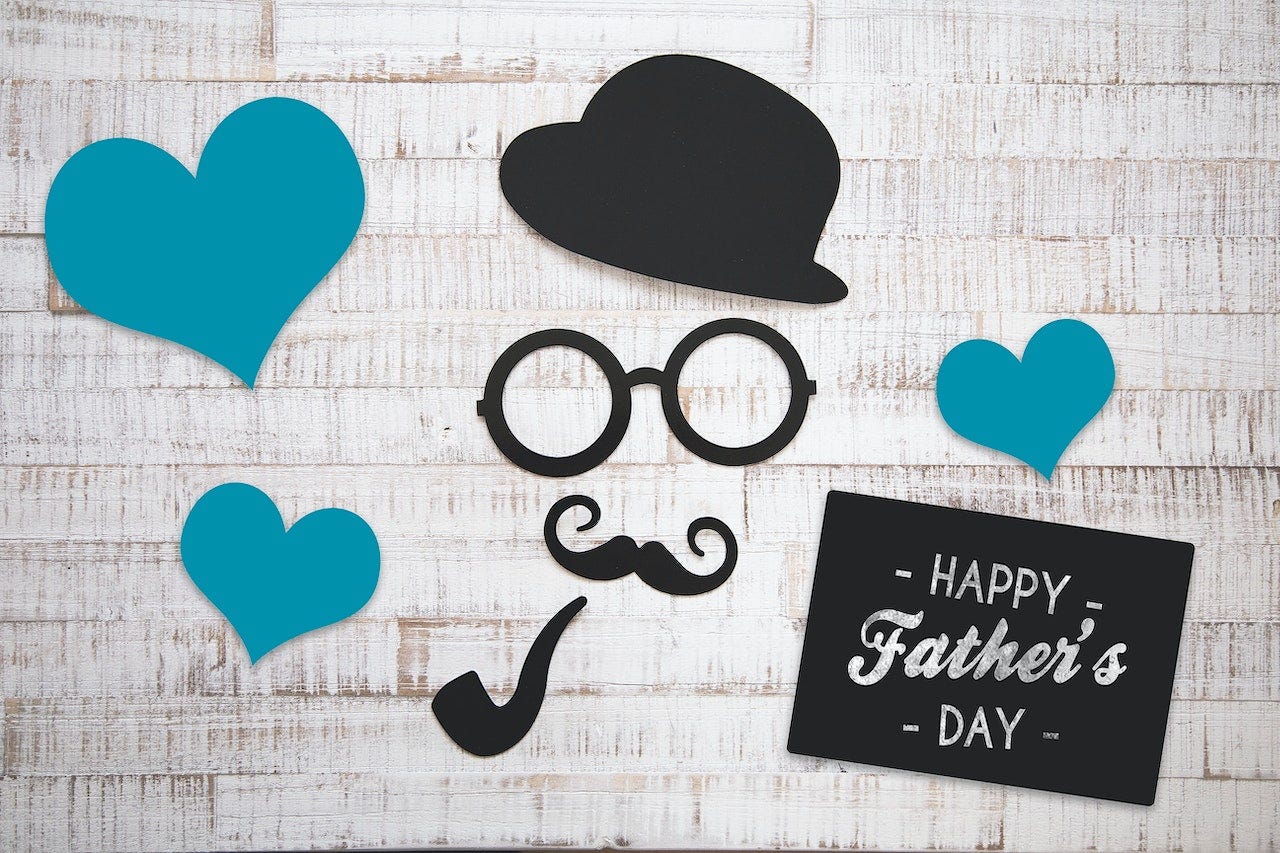
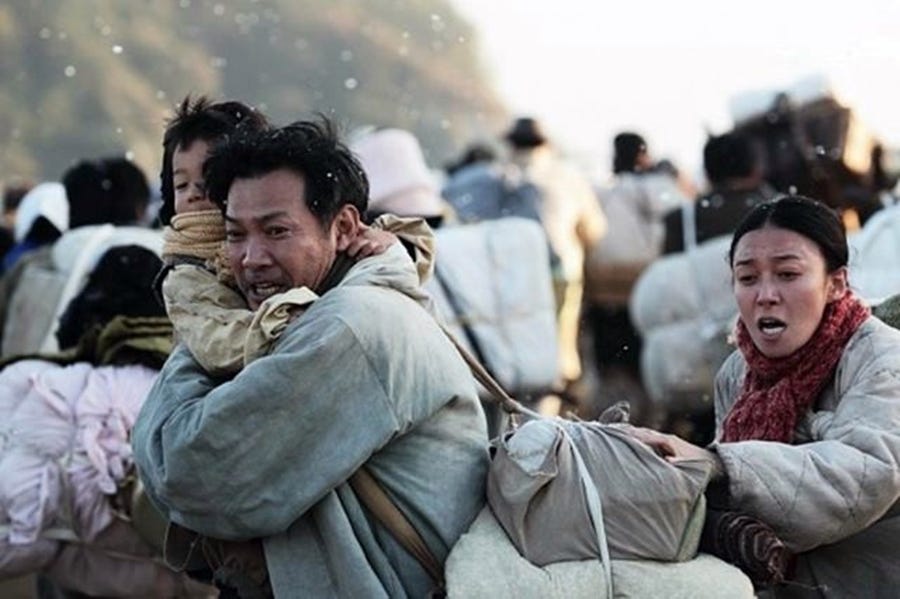
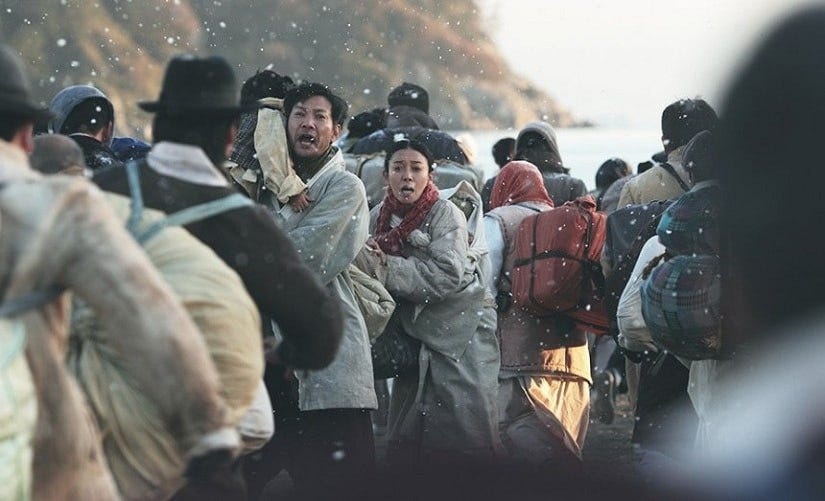
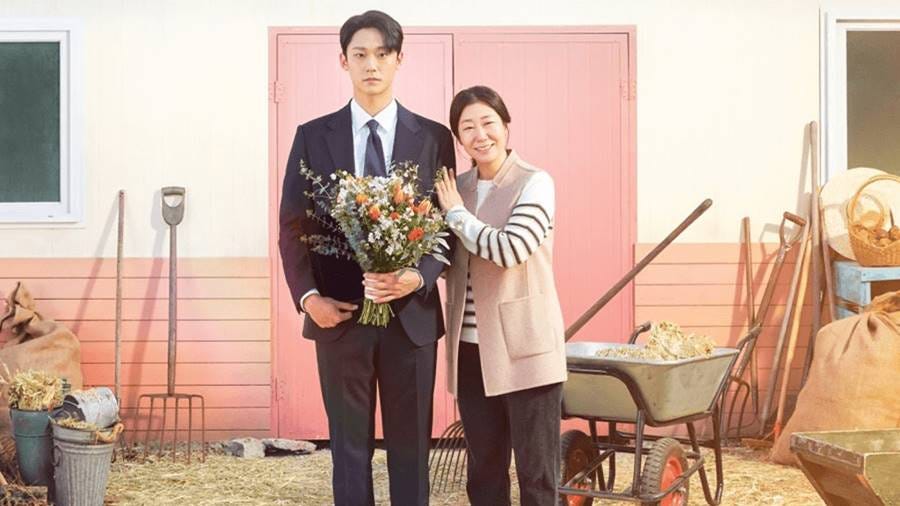
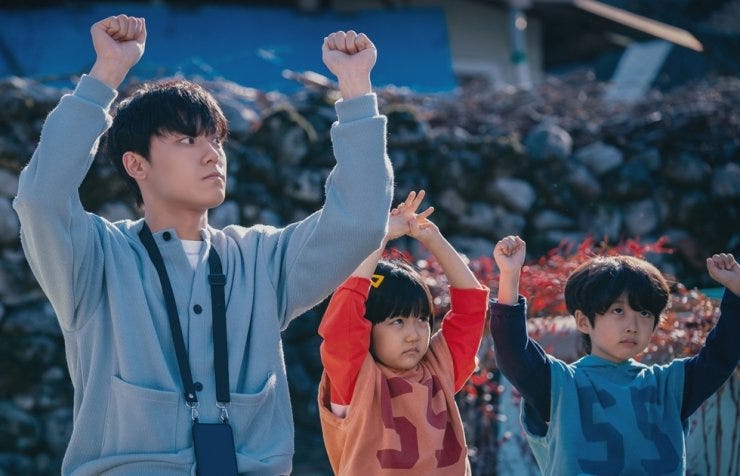
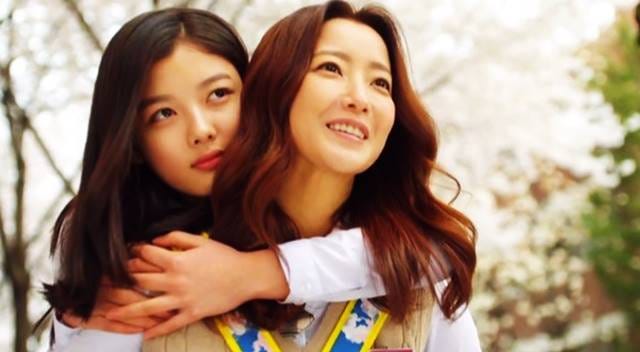
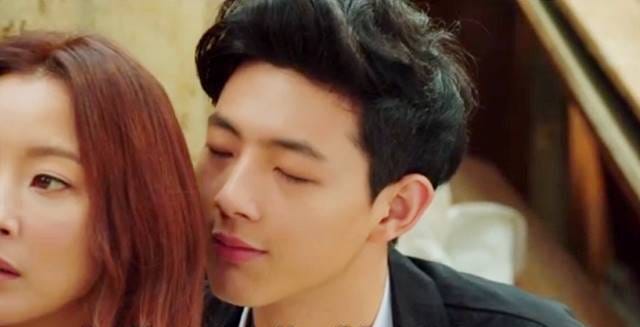
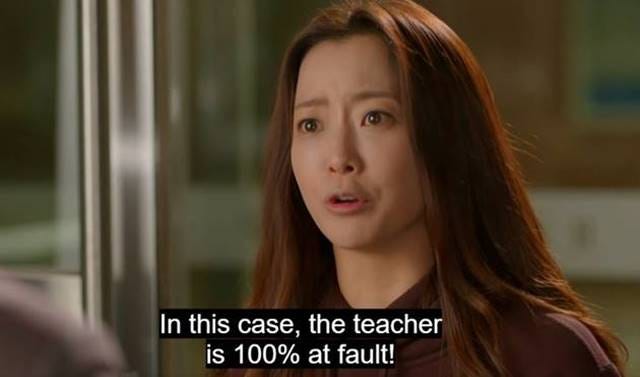
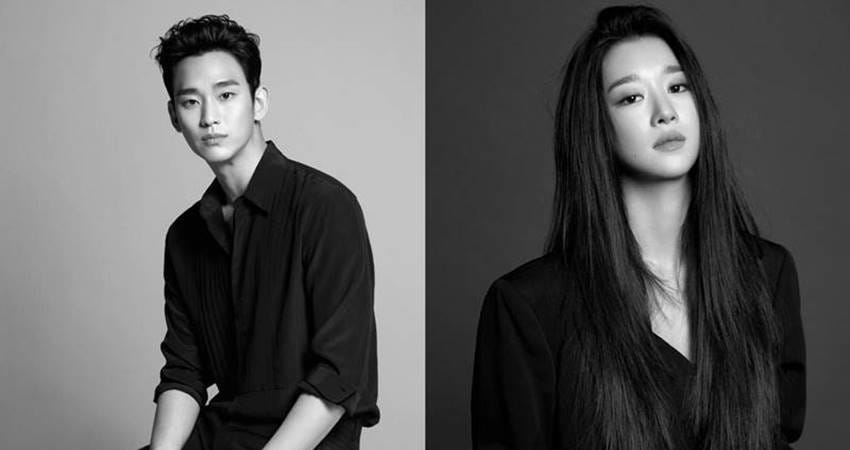
This part from your review of “Ode to My Father” really hit me - “Some people make choices. Others, like my father, were bound by duty to tackle responsibilities that would have crumpled others.”
Your father made a brave, noble and honorable choice to be bound by that duty. Many people just leave. On this Father’s Day, I celebrate his example of humanity and familial responsibility.
Those other reviews you speak of are just clueless and the one about Old Boy is just racist. I’m not Korean but I am from two other cultures that have been similarly treated by history - constantly colonized with efforts at erasure but nonetheless keeping culture and language alive. I think this is why I relate to Korean content so much. This need to survive with culture somewhat intact despite the world’s ignorance or object hatred breeds a kind of world view that people from dominant cultures just won’t understand easily. Idk maybe I’m wrong too. Just Sunday musings.
And seriously that guy needs to eat some Kimchi. Maybe if his gut was healthier he wouldn’t be so cranky. Lol
I skimmed this and noticed a trend in your writing. You accuse critics of "ethnocentrism" when I think "ethno-hatred" is more apt. Or perhaps there's a better word? Anyway, it's nothing to be upset about. You can't be liked by everyone.